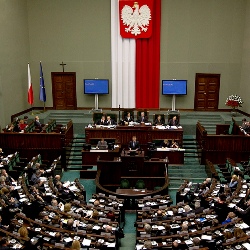Poland’s Reformed Gambling Act Making Market Conditions Unbearable

For years, Poland was one of the many countries across the world whose gambling industry was considered a grey area for international online gaming operators. While online gambling was not officially legal, the government still allowed these online operators to accept Polish players with impunity, but upon realizing that it was missing out on potential tax revenue and leaving players at the mercy of unscrupulous sites, the Polish governments subsequently took steps to regulate the iGaming industry with the Polish Gaming Act. The law went into effect on April 1, 2017, but a couple of months later the piece of legislation is already causing hardships for operators who once found the Polish market to be very profitable market.
Sports Betting Licenses Only
Under the terms of the Polish Gaming Act, no site may provide gambling without first obtaining a license from the country’s Ministry of Finance. However, licensing is only open to sites that offer standalone sports betting, while online poker and casino games are banned under the law at the present time. This has left sites that offer multiple verticals for players faced with the decision of whether or not to create new sites and seek licensing or simply exit the market.
In the meantime, operators that do receive licensing under the Polish Gaming Act will see smaller profit margins than they enjoyed prior to the enactment of the law. This is because all licensed operators will now be required to pay a 12 percent turnover tax on their gross gaming revenues, a figure that is higher than the rates that operators are assessed at in neighboring countries.
Illegal Domains Register
Poland is clearly serious about enforcing the strict terms of the Polish Gaming Act. Since the law has passed, the Ministry of Finance has put together an Illegal Domains Register and has added numerous sites to the list, including bet-at-home, Marathonbet and Vulkanbet. Furthermore, the Polish Gaming Act requires internet service providers to block access to those sites that are trying to operate without licenses, giving the operators no choice but to leave the market. Should Internet service providers fail to block access within 48 hours, they can be fined up to $64,500.
Monopoly Accusations
It seems that many leading operators have decided that the terms of the Polish Gaming Act have made accepting players from Poland fiscally unwise. In recent months, a number of operators have shuttered their sites and exited the Polish market entirely, including Pinnacle, William Hill, Bet 365, Mr Green and Bet Fair. Key executives from these companies have also accused the Polish government of trying to create a monopoly in which only the state-owned sports-betting site Totalizator Sportowy will be able to thrive.
Fortunately, this argument against the Polish Gaming Act could end up being the demise of the law in the near or distant future. This is because under European Union law, state-run monopolies that put foreign businesses at a disadvantage are considered to be acting illegally. If any of the online operators forced out of the market should then choose to file a lawsuit, there is a chance that a judge may find merit in the accusations and order Poland to either repeal or amend its current law. Until then, however, operators will continue to face hard choices about whether or not to continue to do business in the country.
Grey Market to Continue
While the situation remains in flux, the Remote Gambling Association has taken the opportunity to point out that the new bill will in actually fact do nothing to change the situation in the country, and may even have an opposite effect. As a spokesperson for the organization subsequently explained:
“The current turnover system will continue to prevent licensed operators from providing the required level of value and choice to Polish consumers. As a result, Polish consumers will continue to seek out better offerings from operators who are licensed outside of Poland and who are not liable to pay tax there. The proposed blocking measures will not stop Polish consumers from doing so, as these measures can be easily circumvented.”









